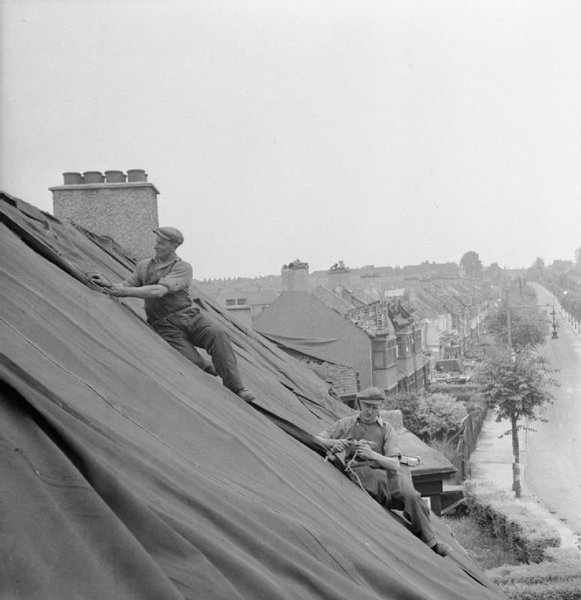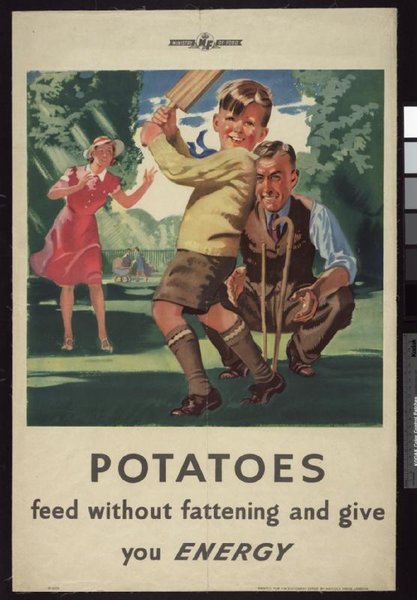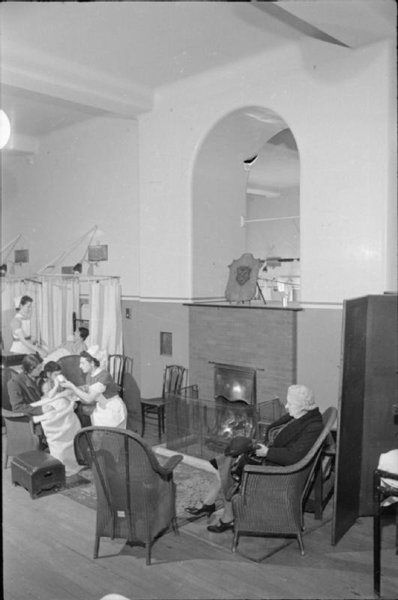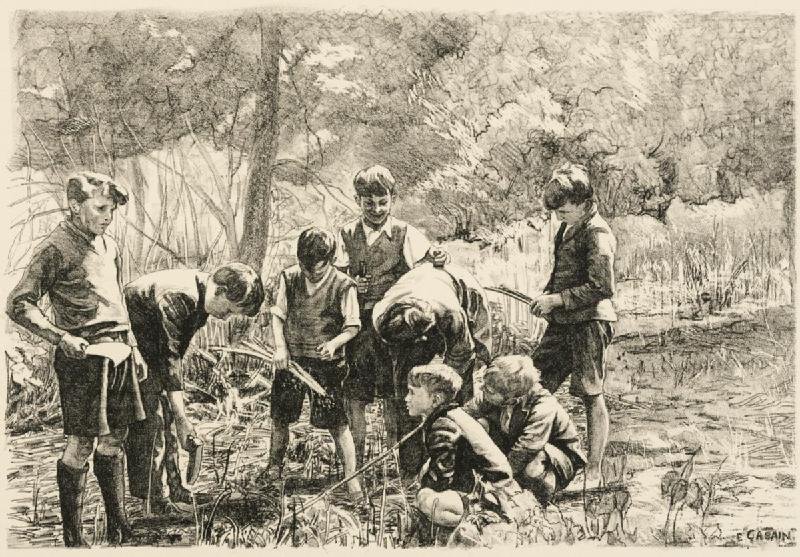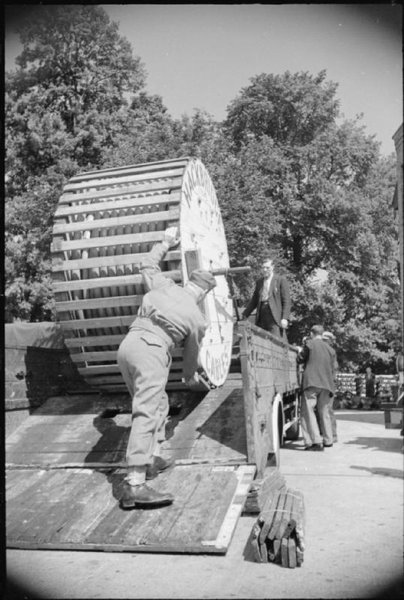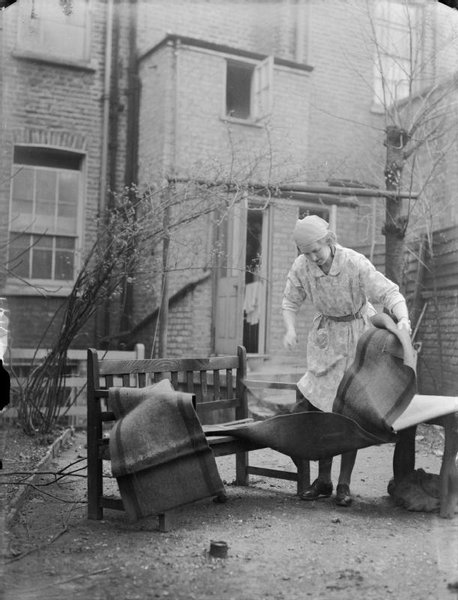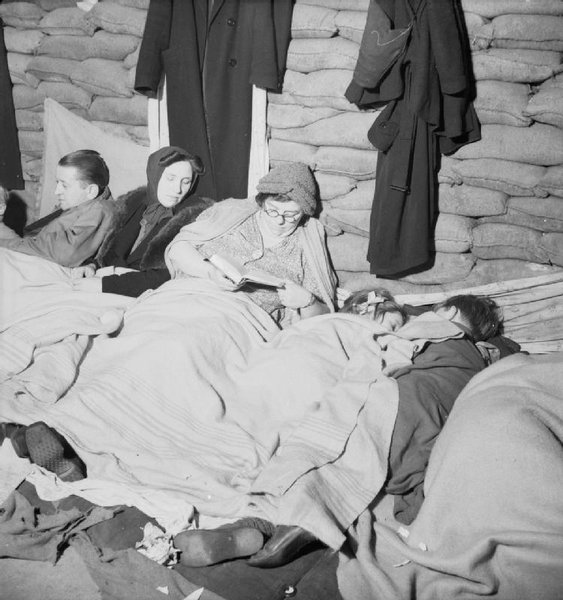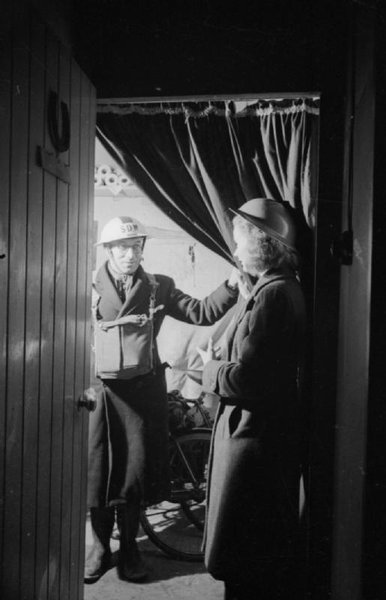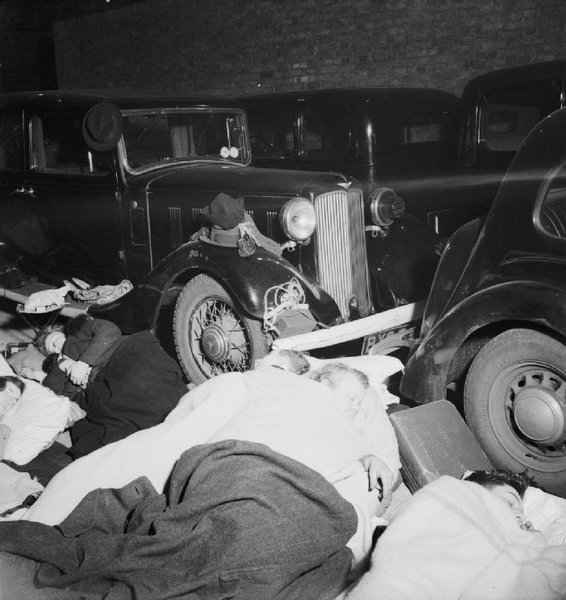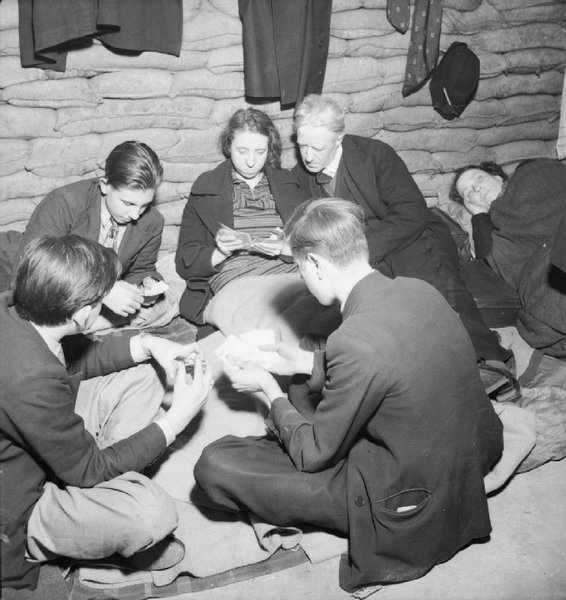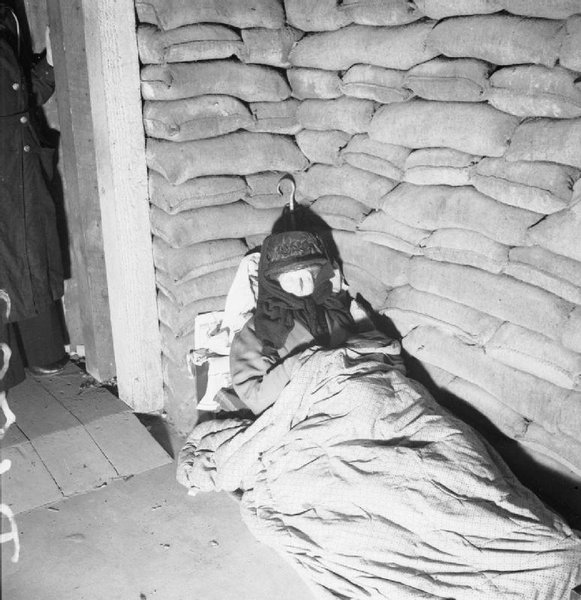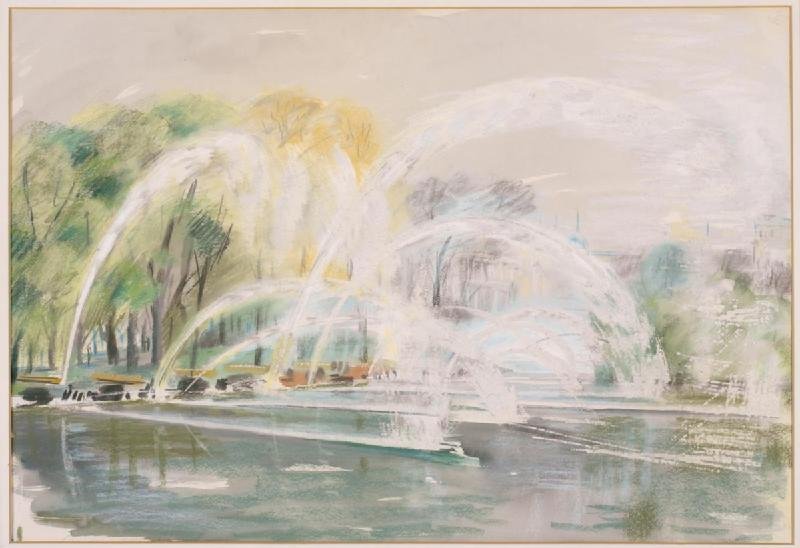High Explosive Bomb at Hartington Road
Description
High Explosive Bomb :
Source: Aggregate Night Time Bomb Census 7th October 1940 to 6 June 1941
Fell between Oct. 7, 1940 and June 6, 1941
Present-day address
Hartington Road, Stockwell, London Borough of Lambeth, SE11, London
Further details
56 18 NW - comment:
Nearby Memories
Read people's stories relating to this area:
Contributed originally by kenyaines (BBC WW2 People's War)
After a few months of the tortuous daily Bus journey to Colfes Grammar School at Lewisham, I'd saved enough money to buy myself a new bicycle with the extra pocket money I got from Dad for helping in the shop.
Strictly speaking, it wasn't a new one, as these were unobtainable during the War, but the old boy in our local Cycle-Shop had some good second-hand frames, and he was still able to get Parts, so he made me up a nice Bike, Racing Handlebars, Three-Speed Gears, Dynamo Lighting and all.
I was very proud of my new Bike, and cycled to School every day once I'd got it, saving Mum the Bus-fare and never being late again.
I had a good friend called Sydney who I'd known since we were both small boys. He had a Bike too, and we would go out riding together in the evenings.
One Warm Sunday in the Early Summer, we went out for the day. Our idea was to cycle down the A20 and picnic at Wrotham Hill, A well known Kent beauty spot with views for miles over the Weald.
All went well until we reached the "Bull and Birchwood" Hotel at Farningham, where we found a rope stretched across the road, and a Policeman in attendance. He said that the other side of the rope was a restricted area and we couldn't go any further.
This was 1942, and we had no idea that road travel was restricted. Perhaps there was still a risk of Invasion. I do know that Dover and the other Coastal Towns were under bombardment from heavy Guns across the Channel throughout the War.
Anyway, we turned back and found a Transport Cafe open just outside Sidcup, which seemed to be a meeting place for cyclists.
We spent a pleasant hour there, then got on our bikes, stopping at the Woods on the way to pick some Bluebells to take home, just to prove we'd been to the Country.
In the Woods, we were surprised to meet two girls of our own age who lived near us, and who we knew slightly. They were out for a Cycle ride, and picking Bluebells too, so we all rode home together, showing off to one another, but we never saw the Girls again, I think we were all too young and shy to make any advances.
A while later, Sid suggested that we put our ages up and join the ARP. They wanted part-time Volunteers, he said.
This sounded exciting, but I was a bit apprehensive. I knew that I looked older than my years, but due to School rules, I'd only just started wearing long trousers, and feared that someone who knew my age might recognise me.
Sid told me that his cousin, the same age as us, was a Messenger, and they hadn't checked on his age, so I went along with it. As it turned out, they were glad to have us.
The ARP Post was in the Crypt of the local Church, where I,d gone every week before the war as a member of the Wolf-Cubs.
However, things were pretty quiet, and the ARP got boring after a while, there weren't many Alerts. We never did get our Uniforms, just a Tin-Hat, Service Gas-Mask, an Arm-band and a Badge.
We learnt how to use a Stirrup-Pump and to recognise anti-personnel bombs, that was about it.
In 1943, we heard that the National Fire Service was recruiting Youth Messengers.
This sounded much more exciting, as we thought we might get the chance to ride on a Fire-Engine, also the Uniform was a big attraction.
The NFS had recently been formed by combining the AFS with the Local and County Fire Brigades throughout the Country, making one National Force with a unified Chain of Command from Headquarters at Lambeth.
The nearest Fire-Station that we knew of was the old London Fire Brigade Station in Old Kent Road near "The Dun Cow" Pub, a well-known landmark.
With the ARP now behind us,we rode down there on our Bikes one evening to find out the gen.
The doors were all closed, but there was a large Bell-push on the Side-Door. I plucked up courage and pressed it.
The door was opened by a Firewoman, who seemed friendly enough. She told us that they had no Messengers there, but she'd ring up Divisional HQ to find out how we should go about getting details of the Service.
This Lady, who we got to know quite well when we were posted to the Station, was known as "Nobby", her surname being Clark.
She was one of the Watch-Room Staff who operated the big "Gamel" Set. This was connected to the Street Fire-Alarms, placed at strategic points all over the Station district or "Ground", as it was known. With the info from this or a call by telephone, they would "Ring the Bells down," and direct the Appliances to where they were needed when there was an alarm.
Nobby was also to figure in some dramatic events that took place on the night before the Official VE day in May 1945 when we held our own Victory Celebrations at the Fire-Station. But more of that at the end of my story.
She led us in to a corridor lined with white glazed tiles, and told us to wait, then went through a half-glass door into the Watch-Room on the right.
We saw her speak to another Firewoman with red Flashes on her shoulders, then go to the telephone.
In front of us was another half-glass door, which led into the main garage area of the Station. Through this, we could see two open Fire-Engines. One with ladders, and the other carrying a Fire-Escape with big Cart-wheels.
We knew that the Appliances had once been all red and polished brass, but they were now a matt greenish colour, even the big brass fire-bells, had been painted over.
As we peered through the glass, I spied a shiny steel pole with a red rubber mat on the floor round it over in the corner. The Firemen slid down this from the Rooms above to answer a call. I hardly dared hope that I'd be able to slide down it one day.
Soon Nobby was back. She told us that the Section-Leader who was organising the Youth Messenger Service for the Division was Mr Sims, who was stationed at Dulwich, and we'd have to get in touch with him.
She said he was at Peckham Fire Station, that evening, and we could go and see him there if we wished.
Peckham was only a couple of miles away, so we were away on our bikes, and got there in no time.
From what I remember of it, Peckham Fire Station was a more ornate building than Old Kent Road, and had a larger yard at the back.
Section-Leader Sims was a nice chap, he explained all about the NFS Messenger Service, and told us to report to him at Dulwich the following evening to fill in the forms and join if we still wanted to.
We couldn't wait of course, and although it was a long bike ride, were there bright and early next evening.
The signing-up over without any difficulty about our ages, Mr Sims showed us round the Station, and we spent the evening learning how the country was divided into Fire Areas and Divisions under the NFS, as well as looking over the Appliances.
To our delight, he told us that we'd be posted to Old Kent Road once they'd appointed someone to be I/C Messengers there. However, for the first couple of weeks, our evenings were spent at Dulwich, doing a bit of training, during which time we were kitted out with Uniforms.
To our disappointment, we didn't get the same suit as the Firemen with a double row of silver buttons on the Jacket.
The Messenger's Uniform consisted of a navy-blue Battledress with red Badges and Lanyard, topped by a stiff-peaked Cap with red piping and metal NFS Badge, the same as the Firemen's. We also got a Cape and Leggings for bad weather on our Bikes, and a proper Service Gas-Mask and Tin-Hat with NFS Badge transfer.
I was pleased with it. I could definitely pass for an older Lad now, and it was a cut above what the ARP got.
We were soon told that a Fireman had been appointed in charge of us at Old Kent Road, and we were posted there. After this, I didn't see much of Section-Leader Sims till the end of the War, when we were stood down.
Old Kent Road, or 82, it's former LFB Sstation number, as the old hands still called it,was the HQ Station of the District, or Sub-Division.
It's full designation was 38A3Z, 38 being the Fire Area, A the Division, 3 the Sub-Division, and Z the Station.
The letter Z denoted the Sub-Division HQ, the main Fire Station. It was always first on call, as Life-saving Appliances were kept there.
There were several Sub-Stations in Schools around the Sub-Division, each with it's own Identification Letter, housing Appliances and Staff which could be called upon when needed.
In Charge of us at Old Kent Road was an elderly part-time Fireman, Mr Harland, known as Charlie. He was a decent old Boy who'd spent many years in the Indian Army, and he would often use Indian words when he was talking.
The first thing he showed us was how to slide down the pole from upstairs without burning our fingers.
For the first few weeks, Sid and I were the only Messengers there, and it was a very exciting moment for me to slide down the pole and ride the Pump for the first time when the bells went down.
In his lectures, Charlie emphasised that the first duty of the Fire-Service was to save life, and not fighting fires as we thought.
Everything was geared to this purpose, and once the vehicle carrying life-saving equipment left the Station, another from the next Station in our Division with the gear, would act as back-up and answer the next call on our ground.
This arrangement went right up the chain of Command to Headquarters at Lambeth, where the most modern equipment was kept.
When learning about the chain of command, one thing that struck me as rather odd was the fact that the NFS chief at Lambeth was named Commander Firebrace. With a name like that, he must have been destined for the job. Anyway, Charlie kept a straight face when he told us about him.
We had the old pre-war "Dennis" Fire-Engines at our Station, comprising a Pump, with ladders and equipment, and a Pump-Escape, which carried a mobile Fire-Escape with a long extending ladder.
This could be manhandled into position on it's big Cartwheels.
Both Fire-Engines had open Cabs and big brass bells, which had been painted over.
The Crew rode on the outside of these machines, hanging on to the handrail with one hand as they put on their gear, while the Company Officer stood up in the open cab beside the Driver, lustily ringing the bell.
It was a never to be forgotten experience for me to slide down the pole and ride the Pump in answer to an alarm call, and it always gave me a thrill, but after a while, it became just routine and I took it in my stride, becoming just as fatalistic as the Firemen when our evening activities were interrupted by a false alarm.
It was my job to attend the Company Officer at an incident, and to act as his Messenger. There were no Walkie-Talkies or Mobile Phones in those days, and the public telephones were unreliable, because of Air-Raids, that's why they needed Messengers.
Young as I was, I really took to the Fire-Service, and got on so well, that after a few months, I was promoted to Leading-Messenger, which meant that I had a stripe and helped to train the other Lads.
It didn't make any difference financially though, as we were all unpaid Volunteers.
We were all part-timers, and Rostered to do so many hours a week, but in practice, we went in every night when the raids were on, and sometimes daytimes at weekends.
For the first few months there weren't many Air-Raids, and not many real emergencies.
Usually two or three calls a night, sometimes to a chimney fire or other small domestic incident, but mostly they were false alarms, where vandals broke the glass on the Street-Alarms, pulled the lever and ran. These were logged as "False Alarm Malicious", and were a thorn in the side of the Fire-Service, as every call had to be answered.
Our evenings were good fun sometimes, the Firemen had formed a small Jazz band.
They held a weekly Dance in the Hall at one of the Sub-Stations, which had been a School.
There was also a full-sized Billiard Table in there on which I learnt to play, with one disaster when I caught the table with my cue, and nearly ripped the cloth!
Unfortunately, that School, a nice modern building, was hit by a Doodle-Bug later in the War, and had to be demolished.
Charlie was a droll old chap. He was good at making up nicknames. There was one Messenger who never had any money, and spent his time sponging Cigarettes and free cups of tea off the unwary.
Charlie referred to him as "Washer". When I asked him why, the answer came: "Cos he's always on the Tap".
Another chap named Frankie Sycamore was "Wabash" to all and sundry, after a song in the Rita Hayworth Musical Film that was showing at the time. It contained the words:
"Neath the Sycamores the Candlelights are gleaming, On the banks of the Wabash far away".
Poor old Frankie, he was a bit of a Joker himself.
When he was expecting his Call-up Papers for the Army, he got a bit bomb-happy and made up this song, which he'd sing within earshot of Charlie to the tune of "When this Wicked War is Over":
Don't be angry with me Charlie,
Don't chuck me out the Station Door!
I don't want no more old blarney,
I just want Dorothy Lamour".
Before long, this song was taken up by all of us, and became the Messengers Anthem.
But this little interlude in our lives was just another calm before another storm. Regular air-raids were to start again as the darker evenings came with Autumn and the "Little Blitz" got under way.
To be continued.
Contributed originally by epsomandewelllhc (BBC WW2 People's War)
The author of this story has understood the rules and regulations of the site and has agreed that his story can be entered on the People's War web site.
A FLYER'S STORY
When war broke out I was working for the Phoenix Assurance Co in the City. I decided to volunteer for the Air Force - to avoid going into the army!!
In May 1940, I was summoned to Cardington to be attested. This consisted of having interviews and a thorough medical examination; and then swearing an Oath of Allegiance to King George VI, his heirs and successors. Finally I was given the rank of Aircraftsman 2nd Class and a number 1161718. Some weeks later I had to give my name and number to a Corporal who said “that’s not a number, it’s the population of China! As far as rank was concerned, I had eight during my six years with the RAF, ending up as a Flight Lieutenant.
In September 1940, I was sent to the Elementary Flying Training School (EFTS) at Hatfield, learning on Tiger Moths. While I was there, an incident occurred which still sticks in my memory. One particular day in October, was a day of low cloud and strong winds and all the Tiger Moths were grounded. All the members of the course were therefore given extra lectures/ Suddenly during a lecture, there was the sound of a low flying aircraft flying across the airfield. One young cadet, looking out of the window said “That’s a Junkers 88” There were cries of derision and some said “It’s a Blenheim” Almost immediately the air raid siren sounded and we all dashed for the shelters. Before we could reach them, the Junkers 88 returned, flew across the airfield, was hit by flak, but dropped four bombs on the de Haviland factory at the far end, causing several casualties and great damage. Many years later, I learned that the new super aircraft, the Mosquito was being built there. I have reflected since, that the crew of the Junkers 88 were brilliant navigators or very, very lucky.
When being trained by Flying Officer Kelsey at Hatfield, he often used to ask pupils to practice a forced landing in a field as if your engine had failed. He did this with me twice, but we found he had an ulterior motive: when we had landed in the field, he jumped out of the Tiger Moth and said `follow me'. I taxied the aircraft round the field to take off again and he would be walking along picking mushrooms. He was very fond of mushrooms and took them back to the mess for his breakfast!!
One of the rather sad things was that at the beginning of every course, which included about 50 men, they always took a picture of all the pupils and that was partly because it was recognized that some would not survive. If you went into a training establishment after the war had started, you would always find some of those in the pictures with little haloes drawn over them - they were the ones who had died. There would be up to about five in the 50 who wouldn't make it. I can't really remember a group photograph where no one had been killed.
I was at Hatfield for about 6 weeks and then went to Hulavington, Wilts. where I was flying Hawker Harts and got my wings.
I finished my training at Sutton Bridge on Hurricanes. I found Hurricanes very difficult to start with. The others were biplanes and this was a monoplane and flew at least twice as fast. The feel of it was very different and seemed to me to be going terribly fast, but when I got used to it, I did like the aircraft. On the other hand, it was somewhat more unstable than the Spitfire and required much more active hands-on flying, whilst a Spitfire when trimmed properly was much easier to handle and in good weather would almost fly itself.
For the next 6 months after training, I went to a fighter squadron in Orkney, where it was very bleak and the wind never stopped. The fighters were there firstly because of Scapa Flow and secondly to try to stop the Germans flying out into the Atlantic. They had big aircraft called Condors as well as Junkers 88s. There is a gap of about 100 miles between Orkney and Shetland which needed covering. The Germans didn't want to go right up to the north by Iceland. There were two fighter squadrons stationed up there, one on Orkney and the other was split between the Scottish mainland and Shetland, to cover these two jobs.
Was I afraid? Not usually. It is true to say that your training gives you confidence which carries you along quite a bit but there is also a feeling that it will always `happen to the other fellow' and you don't think about injury or death happening to yourself, except if you are actually in the middle of a very nasty situation. It something you just get used to.
My next job was as an instructor for almost a year at an Operational Training Unit to teach on Hurricanes and Spitfires. All the pupils already had their wings. The thing is, a Hurricane is a one-seater so you couldn't sit in with a pilot, but there was a Miles Master which was similar to the Hurricane but was a two-seater. The Instructor sat in the back and the pupil was in the front and the most important things to learn were taking off and landing. When you thought they could manage, you sent them up on a solo in a Hurricane with fingers crossed and hoped they could do it.
After leaving the OTU I did some Army co-operation work and some aircraft delivery.
I then transferred to 1697 flight at Northolt in July 1944. This was called Air Despatch Letter Service. We had Hurricanes specially adapted to carry mail. They had a special space behind the pilot and it was also possible to use one of the under--wing fuel spaces for mail. The object of this was to fly despatches from Normandy back to London. We used to fly the Hurricanes in to the airstrips and despatch riders would come from the front bringing despatches for London. It took about an hour to fly the distance back to Northolt where another despatch rider or driver would take it straight in to London, so an action which might have taken place at 7 a.m. would be reported in London by about 10 a.m. This practice gradually spread a11 over Europe as the armies advanced. We advanced with them, flying to the nearest airstrip and collecting despatches for home.
On 26 August 1944, I flew information from Balleray in France to Northolt all about De Gaulle's entry into Paris and it was very interesting to see it in the papers the next day, knowing that I had carried it in.
VE Day was very busy and I made three flights on 8 May, flying from Germany to Holland and Holland to Northolt and then back to Germany. During the post-war period we were even busier than before with mail and information, clocking up a lot of flying hours. It was during this time that I was able to have a little flight on a Focke Wulf 190 which we had captured. It was very interesting but was extremely fast and it was a little unnerving in a way because there was so much electrical equipment. Instead of levers many of the controls were just little buttons so you controlled it very tentatively hoping it would do the right thing.
My last flight as a member of the Royal Air Force was in a Spitfire on 5 April 1946 but in 1953 I did some flying at Redhiil as Air Force Reserve, because I have to admit, I missed flying. However, I finally stopped flying in May 1953 and have not flown since. I totaled up 1527 hours of which I would think half was in Hurricanes.
I didn't find running the mail dull. I enjoyed pilot navigating, taking myself from one place to another. When you trained, you did cross-country flights and set a course from A to B using landmarks to help you along. If it was bad weather, you came below the clouds and if it was too bad, you just couldn't fly. You did have radio to help you, but it was very unreliable so you needed to be able to manage without it. The airstrips were just that -just a cleared field with a runway laid by engineers. You just had to find it by checking the little villages and knowing which ones they were.
Coming in from the sea you could check where you were as you crossed the coast by the shape of the coast and the placement of the villages.
You soon learned not to get lost but it was possible to do so. The first time I took out a Spitfire - in England, fortunately - I got completely lost because it was so fast. When I looked back the place I took off from was gone. I was in rather a panic but I should have realized that by flying west to the Welsh coast and turning right I would have got to Carlisle which is where I was supposed to be going. I didn't think of it because I was in a panic but that was early on in about 1941 before I got used to finding my way. I landed at an airstrip I found and tried again. Not a very good example of good airmanship! ! !
When we weren't flying, we didn't do very much really. There were always a few of us about for company. We used to stay on the aerodrome mostly. We might mooch up and chat to the Air Controllers to see what was happening and if anything interesting was coming in. When we used to fly to Germany, later on, there was a big aerodrome built which had a lot going on. We lived in a little house with a stream behind which was lovely and a nice area to go for walks. There were very few female personnel about. However, fraternising with local German girls was very much discouraged. After the war was over, we were still there for quite some time and there used to be dances which female service personnel used to attend, which were very nice, but overall it was a very masculine life. We used to be wrapped up in flying and aircraft very much and I must say I was never bored.
It is said that some people found it very hard to settle dawn to civilian life again but I can't say I had any difficulty. To be honest, after risking your neck to some extent for six years, it was quite nice to be able to say you were going to live a normal life again.
I was very fortunate in being able to go back to my job at the Phoenix Assurance Co. First of all, they had a rule that no married women could work at the Phoenix, but they did relax that later. They were a very good company and even paid us while we were in the services. Before the war my salary was £120 a year, but even during the war they paid about £60 p.a. When I came back to work for them, my pay was £300 p.a. That wasn't a lot, but you could get married on that. In fact, I met my future wife at work a few months after I returned.
Arthur Lowndes AFC
Contributed originally by Torbay Libraries (BBC WW2 People's War)
This story was submitted to the People's War site by Paul Trainer of Torbay Library Services on behalf of Benita Cumming, the daughter of Ben Cumming, and has been added to the site with her permission. Ms Cumming fully understands the site's Terms and Conditions.
On that fateful day in September of 1939, which fell on a Sunday, I heard on the radio that Britain had declared war on Germany, as that country had invaded Poland, and our country had a treaty with Poland to come to her aid. It came to my mind when I heard this that now was the opportunity for me to break away from the humdrum existence I was leading at that time and enlist to get away from it - providing the conflict lasted long enough for me to participate (the general opinion at the time was that it would be over by Christmas).
The next day in the local newspaper was an advert for young men, at least 5 foot 11 inches tall, who were wanted as recruits for the Brigade of Guards, and right away I thought, "That's for me!" The first opportunity I had, I was off to the Recruiting Office in Torquay and got signed on. I was given a railway warrant to get me to Exeter, where I went to the Army Barracks there, had a medical examination, passed and got accepted for the Grenadier Guards. I hadn't said anything at home about what I was going to do and when I got back that evening and told them the news, they were very proud of me but also very worried about what was going to happen to me.
I hung around for a few days saying my goodbyes, whilst I waited for a railway warrant to take me to London and Chelsea Barracks, the Guards Depot to where I had to report. My mates said I was crazy, but they all wished me well, and then I was off. It was late at night when I finally arrived at the Depot and was given a meal and put in a room with other new recruits, some of whom were to remain comrades with me for the next five or six years. It was all a very strange experience for me; the farthest I had ever been previously was a school trip to Swindon to view the Railway Sheds!
We did not see anything of the world outside for a couple of months as before being allowed out, recruits had to be able to walk properly as becomes a Guardsman. My Army pay was 14 shillings (70p) a week, of which I made my Mother an allowance of five shillings (25p) a week. After a few days we were issued with a pair of hobnailed boots and a khaki uniform with brass buttons, and on our legs from knee to ankle we wore puttees (strips of cloth). It was the same kind of uniform that troops who fought in the First World War wore. We did not get proper battle-dress until much later. I had to take a lot of stick from my new comrades because as I came from the West Country, they called me a Swede Basher and said that I had straw sticking in my hair.
The next few months were spent drilling and marching on the barrack square and being toughened up in the gymnasium, until we were considered to be fit and efficient enough to be changed from recruits to Guardsmen. We were then put on what was referred to as Public Duties - that is, going on guard at St. James' palace and Buckingham Palace. We also had to do guard on the bridges over the Thames as the I.R.A. were attempting to blow them up.
In early 1940, in the period known as the "phoney war", the Russians invaded Finland. Chamberlain, the then Prime Minister, had the crazy idea of sending an expeditionary force to go to the aid of the Finns. I was sent on embarkation leave prior to joining that force but fortunately the plan was scrapped; it would have been catastrophic if it had been allowed to
go ahead. However, I had gone on leave carrying all my equipment, including a rifle and ammunition. It was my first leave since joining up and the situation had changed a lot since I left home; Joan had left to join the N.A.A.F.I. and my parents could not keep up the mortgage payments on their house at Danvers Road. They had applied for and been granted a house, 23 Starpitten Grove, on the Watcombe Council estate. It was a nice little house, newly built in a cul-de-sac but miles from Torquay town. Sometime after I learnt that Father had been drafted away somewhere in the country, helping in the work of constructing an Army camp. Mother was left on her own and she had to take in some evacuees from the East End of London, two or three boys I think, and I gather they were a right bunch of hooligans. My sister Mary, or "Blossom" as she was known, came to live with her, which made life a little easier for Mum.
The early spring saw the invasion of Belgium by the Germans, and British troops were rushed to the border of France and Belgium to try to stem them, but they were brushed aside and had to retreat, eventually to be evacuated from Dunkirk. The Luftwaffe began their bombing campaign and the Battle of Britain had commenced; the fear in this country was that the German army was about to mount an invasion as barges had been spotted moored at ports on the French coast across the English Channel. There was also the possibility that parachutists would be dropped in great numbers on strategic targets. My mob was the holding Battalion and we were stationed in London for the defence of that city and we were put on alert to counter the dropping of any airborne troops.
One duty was being taken by military transport to various Police stations in the Metropolitan area and two Guardsmen would ride in the Police cars when they went out on patrol, so that there would have been a quick armed response to anyone dropping from the sky. Then, the company I belonged to were sent to possibly defend the peninsula at Greenwich, the location now of the Millennium Dome. In 1940 there was a vast complex there owned by the South Metropolitan Gas Co, where it was reputed they made everything from Poison Gas to Epsom Salts. That in itself was unimportant, but the site itself was important, as whoever was in control there would control the traffic on the River Thames. The area around there was being very heavily bombed. One of our duties during the raids was, if incendiary fell on to the Gasometers, we had to clamber up and place sandbags over them, which was a pretty hairy experience.
After a spell there my company were drafted to Wakefield in Yorkshire, to join as reinforcements to the Third Battalion which had been badly mauled in France, and was in the process of being reformed. We were put into Civvy Billets, which was a great treat after being in barracks in London, having a decent bed to sleep in and home cooking; it did not last very long as the Battalion moved to the East Coast of Lincolnshire and Norfolk where we bivouacked, dug trenches and prepared positions to prevent the landing of enemy troops if they attempted the expected invasion. However, Hitler called off operation "Sea Lion", as it was codenamed, and we were ordered to stand down. There were stories at the time that some invasion barges had tried to land an invasion force somewhere along the East Coast and oil had been poured on to the sea and had been set alight. Rumour had it that burnt corpses had been washed ashore, but I never saw any myself.
We then had another change of duty. We were sent to where the aerodromes of the fighter planes operated from (viz: Biggin Hill and Henley) as the Battle of Britain raged on; the Germans had a ploy of following returning aircraft and shooting up the runway. An ingenious means of defence was sunken pillboxes which by the use of hydraulics rose from the ground and could be used to engage any incoming enemy. Eventually, the R.A.F. formed their own Defence Regiment and we went off to the Home Counties, mainly Surrey, to resume battle training. One location was Lingfield in Surrey where we were billeted in what was formerly racing stables, which was an ideal billet on the grounds that one was able, when off duty, to slip in and out surreptitiously without being caught.
Having a drink in the local pub one evening, I met a girl named Jessica, and after a few more meetings we began a relationship. I soon found out that she was married to a soldier and I should have ended it, but as it was wartime, one's morals were not as good as they ought to have been, and we spent as much time together as we could. It was wonderful whilst it lasted, but it all came to an end one night when I was with Jessica at her home, and she cried out that her husband and his father were approaching the front door. It transpired that they had found out she was having an affair with a Guardsman and they intended to give me a good going over. I scarpered out the back way and got clear. A couple of days afterwards the Padre of the mans unit came to see me and accused me of breaking up the marriage, and I got reprimanded by the Adjutant and was transferred to the Fifth Battalion, which was stationed in Yorkshire. A sad end to a romantic interlude.
The war had been going on for a couple of years now, and the situation was not looking very good for Britain. Italy, of course, had allied herself to Germany and now the Japanese had entered the conflict against us and the United States. The Japanese were defeating us in the Far East, and in the Middle East the Germans and Italians had us on the run. All the Army who were stationed in Britain could do was to carry on training hard and build up enough strength in manpower and armaments to be able one day to counter-attack the enemy abroad whenever and wherever possible and eventually mount an invasion on the mainland of Europe. Most of the training we did was in the north, over the bleak Yorkshire Moors. At Christmas in 1942, we were at a place called Louth in Lincolnshire, billeted in stables and barns on a farm. Some of my comrades who knew I had been a butcher persuaded me to kill and dress a turkey, which operation I duly carried out using my bayonet. It was a huge bird, about 20-30Ibs, and we boiled it and had it for Christmas dinner. It was not what you would call a gourmet meal!
In 1943 we moved to Scotland to go on manoeuvres in the highlands; at the time of course, we were unaware what our ultimate destination would be. The powers that be were of the opinion that that particular terrain was similar to that found in North Africa, which was where we were destined to invade. The first place we arrived at was Ayr, where we bivouacked on the racecourse there (we seemed to have had an affinity with horses!) From there we were sent on a scheme to the Isle of Arran which lies off the coast of Ayrshire, way across the Island and get picked up on the other side a few days later. It was in the middle of winter, we were split into pairs, were not given any rations and were told to live off the land. The idea of the exercise was how to survive in an hostile environment. My luck was in; on the second night we came across an isolated cottage which was occupied by an elderly couple who were frightened out of their lives when they saw us! But the best thing was, there was a middle aged woman who was staying there; she was the wife of a Naval Officer and apparently, she had come there to get away from Glasgow, which was being heavily bombed. Anyway she took a shine to me and that was that, enough said! I would not have minded staying another month or two there. My mate and I made our way to Brodick on the coast where we were to be picked up. There were some shops there and it did not seem that things were on rations. All commodities were supposed to be rationed in wartime Britain, but I was able to purchase several packets of tea and sugar which I sent home when we got back to Ayr, which was much appreciated by
Mother.
After a spell in Ayr we then moved to a mining village called Tarbolton, where we went into civvy billets which was a real treat, especially if the man of the house was on night shift! But after that the honeymoon period was over for we poor soldiers, and we were now due for real hardships. We embarked at Ayr on to a ship and steamed via the Sound of Bute to Loch Fyne and dropped anchor at Inveraray, where we stayed on board for several months staging amphibious landings and trekking over the Highlands and training in the art of combat with the Commandos at Fort William. This took place in the most appalling weather conditions - driving rain, snow, freezing nights - and it was worse than anything we were to experience overseas. Eventually we sailed out of the Loch via the River Clyde and disembarked at Perth, where we stayed a while in a carpet factory there, awaiting a Troopship to transport overseas. I went on embarkation leave from there and had a few days at home. My other sister, Joan and the man she married, Alec MacPheat, were both there. He was on war work in the area, at a small factory at St. Marychurch, turning out aluminium parts for aircraft. He had been invalided out of the army which was where Joan met him, when she was working for the N.A.A.F.I. My father was also working at that factory as a cleaner. Bloss and Tony, her son, were also there. Tony, who was just a small child then, can remember me coming home with all my equipment and weaponry. It was the last time I ever saw my mother.
Contributed originally by Peter R. Marchant (BBC WW2 People's War)
Don’t tell Adolf about the wonders of country living for a small city boy. Don’t tell Adolf about the exciting playgrounds of the bomb damaged houses. Don’t tell Adolf about the excitement of the search lights and the guns and don’t tell Adolf how he changed my early childhood into an adventure often frightening, but with vivid memories I recall to this day.
My very first ever memories are framed by the war. It must have been sometime in 1940 when I was almost four years old. Our family, my Mum and Dad and my older sister Thelma, were living in a Victorian row house in Clapham, London. This area has now become quite fashionable with house prices equal to my father’s life time income. Then, it was a working class neighborhood, clean and respectable, populated by postmen, mechanics and lorry driver tenants like my father. The only thing I can remember about the interior of the house was the Morrison shelter in the center of the bedroom. There I spent many weeks of isolation with a severe attack of the mumps in uncomprehending discomfort, picking at the grey paint of the cage unable to take anything more solid than my mother’s blancmange and barley water, her remedies for all known human ills. I’m sure my parents were grateful the authorities provided us with a combination bomb shelter, table and sick bed, although I wonder was anyone actually saved by this contraption? This was a time when one’s betters weren’t questioned; my family rarely doubted they must know what was best for us. For those who know only about more serious bomb protection the Morrison shelter consisted of a bed surrounded with stout wire mesh and a steel top on four corner legs about the right height for a table. The idea was to prevent the occupants from being crushed to death under falling masonry, a small sanctuary to wait in, listening for the scrape of shovels and praying to be rescued before the air ran out. In addition to the ugliness and awful paint its major flaw was the assumption that we would all be in bed when the house collapsed, a family so stunted by food rationing that we were able to sleep together comfortably in a double bed. Did Adolf realize the Morrison was part of the propaganda war designed to show the Germans that we English were just as viral as the master race; a people that only needed a tin bed as protection from their bombs?
As I got better I was allowed to play in the garden at the rear of the house. I remember it as long and narrow flanked on one side by the windows of a small factory making parachutes, or bully beef, or some other necessity for killing the enemy. The weather must have been hot as I recall the young women talking to me through open windows. They seemed happy in their factory routine and the pound or two a day they earned which was probably the best money they had ever made. Or were their smiles just for the rather shy little boy they gave the small pieces of chocolate and orange segments then as rare and sought after as black truffles? If there’s a page in the calendar that can marked as the beginning of my generally good relations with the opposite sex it’s probably spring 1940.
There are many more memories that come to me clearly but they are mixed in a jumble of time. It must have been after the serious bombing of London started in summer 1940 that my sister and I were evacuated. We were all caught up in a great sea of events and
if the choice for our parents was having us with them so we could all be reduced to rubble together or safe country life for their children, it was not difficult to decide which train to catch. An adult knows the terrors and uncertainty of the world and has worries beyond tomorrow but a small boy knows only the moment and thinks of an hour as an eternity if an ice cream is promised.
We were sent to live with a Mr. and Mrs. Daniels and their two sons on their small holding at Gidcott Cross, a junction of narrow country roads about six miles from the market town of Holsworthy in the county of Devon. The surrounding country was divided into small irregular fields on a plan lost in antiquity, surrounded by tall hedges topped with thick bushes and occasional trees.
Many evacuees have grim stories to tell and we were very lucky to be in the care of a loving couple who treated us like their own. The Daniels had a few acres near the house and some additional pasture rented nearby. On this they kept a few milk cows, all with pet names, Daisy, Sadie and Jessie, a pig or two and a muddy barnyard full of chickens. A pair of ducks stayed most of the year in a narrow rivulet that ran around the house. A female dog Sally, always ready for a rabbit hunt, followed us around everywhere when she was not ensuring a new supply of terriers. The farm house had, or rather has, as it seems little changed over the years, thick rough walls yearly whitewashed, four or five rooms in two stories under a thick thatched roof. The Daniel’s house was at the foot of gently sloping fields set back from the road with a pig barn on the left and the milking shed and hay storage on the right of the heavy slab stone front path.
Mr. Daniels was a member of the local Home Guard, a group of tough wiry men too old for immediate military service. There were no blunderbusses or pikes, but modern weapons were in short supply. Mr. Daniels had upgraded to a worn double barreled shot gun a deadly weapon in his hands as all the rabbits knew. At lane intersections old farm wagons loaded with rocks were ready to be pushed into a road block. One clever ruse was redirecting the road signs, a confused German being thought better than a lost one. Any one advancing down the road to Holsworthy would find them selves in Stibbs Cross with only one pub, a much less desirable place to take over. The home guard met regularly near our cottage for drill and comradeship. It was so popular that the institution lived on well after the war as a social club. These men knew every blade of grass for miles around and would have caused any German paratroopers much annoyance if Adolf the military genius had ordered landings in this remote corner of England.
When they were not repelling German invaders the Home Guard kept an eye on the Italians in the area. Up the road was the Big Farm, big because it had a barn large enough to house a half dozen trustee Italian prisoners of war working the land. Riding on farm wagons pulled by huge shire horses, as petrol was very scarce, they would stop outside our cottage on their way to the fields. They looked like old men to me though they were just young boys probably not yet 18, endlessly happy to be out of the war, captured by a humane enemy and ending up in this idyllic setting. They carved wooden whirligig toys with their pen knives for me and the nostalgic Italian songs they sang I can hear in my mind to this day.
It was a wonderland for we city kids with farm animals, the open country to explore and no shortages of food. The farm was in most ways self supporting, if you wanted a stew you shot a rabbit or two, or cut the throat of a chicken. I helped with the endless farm chores collecting eggs every day from the nest boxes, when the chickens were good enough to cooperate. Many chickens didn’t appreciate the conveniences we provided and made the job into an adventure searching the hedgerows for errant layers. No tinned or horrible dried food for us, everything was fresh as the vegetables pulled from the ground within sight of the front door. When we eventually returned to London my sister and I were noticeably well fed and quite fat, the battle for my waist line probably goes back that far!
Without modern conveniences it took most of the daylight hours to keep the house running and everybody was expected to pitch in. Another of my ‘helping’ jobs was to help fill the water barrel. With a small boy’s bucket and many trips I walked up the road a hundred feet, to the well hidden in a hedge tangled with wild roses, pushed the wooden cover aside and, after tapping on the surface to send the water spiders skimming out of the way, dipped in my bucket. This taught country ways very quickly and water became a precious commodity to be recycled for many uses until it was finally used to scrub down the flag stone floor. The water was heated in a large black iron kettle hung on a chain over a log fire in the inglenook fireplace the only source of heat in the house. Cooking had changed little over hundreds of years and savory stews and soups were made over the burning logs in large iron cauldrons. There was no electricity or gas in our cottage and finer cooking required Mrs. Daniels skillful fussing with a flimsy paraffin oven in the back room from where emerged a stream of delicious pasties, or covered pies, filled with a range of edibles that would have surprised even a Chinese cook. These pasties were brought out every meal covering the table with a smorgasbord of dishes from ham and egg, potato and wild berries, until finished. The men took them into the fields stuffed in their Home Guard haversacks and with a jug of local cider and after grueling days in the sun bringing in the harvest ate dinner sprawled against the hay stacks. The days ran with the cycle of the sun; the evenings were lit sporadically with a noisy pressured paraffin lantern and bedtimes were shadowy with the light of candles.
I remember my evacuation with the Daniels as an idyllic time although now I detect there must have been a feeling of abandonment and bewilderment long buried. One of my parent’s visits I didn’t recognize the lady with my father as my mother had just started wearing glasses. Later on, another visit, I wandered the lanes all day looking for them on a country walk they had taken and was tearfully relieved to find them sitting in a field eating sandwiches having no idea how upset I was at being left. Evacuation must have had a profound effect on many young children like me. My wife thinks that this experience is the cause of many of my strange ways and quirks of personality although I claim genius has its own rules.
My sister and I were returned to London after a couple of years in the country, the precise timing is vague in my memory. The aircraft bombing was much less now although the sirens still wailed for the occasional raid setting the guns booming on our local Clapham Common. I wish I still had my treasured collection of shrapnel from the antiaircraft shell bursts that rained down razor sharp fragments of torn steel and made being outside as dangerous as the bombing. These would be poignant reminders of this time so distant it feels like another life. Memories of my best friend Basil who always managed to find the pieces with serial numbers, the most coveted in our collection.
I recall one night the warning sirens sounded and the sky was lit by searchlight beams probing for the attackers. Within minutes the street was as bright as the sky, plastered with small oil filled fire bombs. They were everywhere causing small fires in the gardens and on the roofs of our street. One slid through the slates and wedged itself under the cooker of our upstairs neighbour, Mrs. Tapsfield. My father spent the night running up and down the stairs carrying buckets of dirt from the garden and spraying the cooked cooker with a stirrup pump. I can, even now 60 years later, see my mother next morning standing on a chair with a hat pin puncturing the hanging bladders of water filled ceiling paper from the flood upstairs. The fire bombs caused a lot of minor damage but they were all damped down and none of our neighbours lost more than a room or two. For many years after the sheet metal bomb fins would turn up when a new flower bed was dug deep. The trusty stirrup pump gathered dust in the coal cellar ready in case it was of need in another war in the new atomic age.
England was a very grey place with some rationing into the 50’s. For us kids Clapham was a wonderland of bomb damaged play houses and vacant rubble strewn lots. There were complete sides of buildings missing leaving the floors with wallpapered rooms precariously suspended. Bath tubs and staircases were stuck teetering to a wall with no apparent support stories up and the cellars were half filled with debris with only dusty tunnels for access. You can imagine the games these inspired for us boys. A special game was attacking and defending the half flooded abandoned concrete gun emplacements on Clapham Common and exploring the communal air raid shelters dug in the square. If only our parents had known!
How do you remember the events of a war time childhood? Memories are like a damaged film, occasional clear scenes separated by long stretches scratched and out of focus.
Through the often repeated stories distorted by their retelling; by today’s chance incidents that start a flow of thoughts to a half forgotten scene. Was it a page in a book or an E mail from a friend, who can tell the truth from imagination? I cannot be sure of the exact timing and the precise details of my experiences in WW2 they have been rounded off by time, and in this diary I have done my best. Although the accuracy may not be perfect and who can be sure in the valley of the shadow of memory, I hope to have conveyed the atmosphere of my experiences in these anecdotes.
Contributed originally by Jean_Jeffries (BBC WW2 People's War)
First thing I remember of September 1939 is being told we must deny any Jewish family connections.
We lived in a fairly large house opposite Clapham Junction, South London. We quickly moved house to one further from the busiest railway junction in London, which was a prime target.
Our first Air Raid Shelter was the London Transport underground tube station. Bunks had been placed along the platforms and each evening, we would arrive with a few possessions and take our place in a two-tier bunk; the only privacy was a blanket suspended from the top bunk. At this time, my father was a fire-fighter so mum was alone in the Tube with two small children. If one wanted the loo, we all had to go, complete with any possessions - teddy bears and dolls! I was very nervous, not of bombs but of some of the weird people who we were living so close to.
If we were out during the day and a siren sounded, some of the shops would open the trap-door in front of their shop (which was used for deliveries) and we'd scuttle down the ladder. My favourite shop was David Greigs, us kids were spoilt there. I always dawdled outside hoping the siren would sound, never giving a thought to bombs! Then the Government installed the Anderson Shelter for each family. It was sunk into the ground for about 3ft and measured roughly 9ft by 9ft. It had two, two-tier bunks and accommodated our 6 family members with a squeeze. This was luxury after the Tube, but, being below ground level with no ventilation, it was damp and began to smell. Everything went mouldy and I still recognise the smell. I hated the toilet arrangements - a bucket outside for use during a lull, brought inside for use during a raid. During this time, my brother, aged 5, developed asthma and my father T.B., although he was not aware he had it. Dad got his calling-up papers and was turned down on medical grounds, but the examining doctor refused to tell him why or warn him of the Tuberculosis they'd found. I heard my parents worriedly discussing it and I was glad he wouldn't be going to war.
The evacuation of London began. I was ready to go with my gas mask, case and with a label tied to my coat. My brother was too ill to go, so, at the last minute, my mother decided to go also and take him away from London. So we set off for some vague address in Bakewell, Derbyshire. Families in safe areas were ordered to take in evacuees and, in this house, we were resented and made to feel very unwanted. Food, already scarce, was even more so for us. Our mean hostess fed her own family well with the rations intended for us. Within a month we had left and it was years before I ate a Bakewell tart or admitted Derbyshire was beautiful!
Next, we reached an old farm cottage in Bampton, Oxfordshire. Our landlady was a Mrs Tanner, a warm-hearted person who made us welcome with a full meal and a blazing fire - what a difference!
Mrs Tanner was the wife of the local Thatcher. They kept livestock for their own food, as country people did then. Despite being Cockneys, we had come from an immaculate home with electricity, hot water, a bathroom and an indoor toilet. We now found ourselves in this warm, well-fed friendly cottage with friendly bed bugs, kids with head lice, a tin bath hanging on the garden wall and a bucket'n'plank loo in the yard. The loo had a lovely picture of "Bubbles", the Pears advert, hanging on its wall - very tasteful.
On Thursdays, all doors and windows were tightly closed whilst we waited the coming of the Dung men; two gentlemen wearing leather aprons emptied everyone's buckets into their cart. What a job!
My brother was very much worse, skinny and weak with breathing difficulties. He spent time in hospital and mum stayed with him. Mrs Tanner treated me like yet another grandchild and I soon settled happily into my new way of life. Mum asked her if she would take me to the town, a bus ride away, to get new shoes and some clothes. Off we went on what was literally a shop-lifting spree. I was both frightened and excited and sworn to secrecy. Mrs T. kept the money and the coupons and mum was thrilled to have got so many bargains. I never told her! But, when I wore my new shoes or my finery, I always dreaded someone asking me questions. I laid awake at night rehearsing my answers. I was never tempted to try it myself. When I see Travellers, kids, I often think "that was me once". After a year of my idea of heaven, mum decided to return to London to see if the hospitals there could help little Eddie. We got back just in time for The Battle of Britain; I'm glad they waited for us. I was so homesick for Bampton that I even contemplated running away to try to go back. Although I settled down, I still think of Bampton as my home and, after 63 years, I still go back for holidays. Just one year made such an impression on me. It was so carefree and I enjoyed some of the jobs with the animals.
During the time we were away, my dad had carried on with his job and Fire-fighting in London. Our home had gone, so we stayed with an Aunt until we got somewhere to live. Empty houses were requisitioned by the Authorities, who then allocated them to those who needed them. My parents applied for a house, explaining that Eddie needed to be near a hospital, but they were told that, as the father was not in the forces, they did not qualify for accommodation. They were heartbroken as a doctor had informed them that, without a decent home, Eddie would not live long. My father insisted on volunteering for any of the forces, but was once again declared unfit. Eventually, after mum worried them every day, we were given two rooms in a small terraced house, sharing a toilet with another family. There was no bathroom and we were made to feel almost like traitors with frequent remarks directed at my dad. Even at school the teachers singled us out with "anyone who's father is not in the forces will not be getting this" - this could be milk or some other treat we regarded as a luxury. One teacher was so obsessed that today she would be considered mentally unbalanced. A project she gave us 10year olds was to devise tortures for Hitler or any German unlucky enough to survive a plane crash. I cheated and copied one from a book.
Our shelter was now a reinforced cellar. It was dry and spacious and, during heavy bombing, some of our neighbours joined us and we had what I considered to be jolly times together. Food was in very short supply; although we had ration books, there was not always enough food in the shops. I was sent to queue up, then mum would take over while I queued again at the next shop with food, where we repeated the pattern. I once reached the counter before mum got there; we were waiting for eggs. I got 4 eggs in a paper bag and, as I left the shop, I dropped them. Carefully carrying them back to the counter I told the assistant she had given me cracked eggs. I was shouted at and called a lying, nasty little girl but managed to obtain 4 replacement eggs. I just could not have told my mum I'd broken them.
A neighbour of ours was a fishmonger, poulterer and game merchant. He sometimes had rabbits for sale; they were always skinned and usually in pieces. After bombing raids, there were often cats straying where their home was destroyed, or dogs wandering about the streets. We think our fishmonger solved this problem. I believe most women realised the meat wasn't quite what they wanted but had to have some meat to put in the stew. Luckily we had a vicious wild cat I had taken in and being so spiteful, she lived a long and happy life, occasionally bringing home a piece of fish. How she managed this I don't know. Could it have been bait for a lesser cat?
School was rather a shambles. We had our classes in a shelter, that is 2 or 3 classes at a time; as there was insufficient room for all the children we had mornings or afternoons only. The other class we shared our shelter with always had such interesting lessons! I feel awful about admitting this but the education system was so easy to play truant from. If you didn't turn up they assumed you'd been bombed or sent away to safety. A couple of friends and I used to ignore the danger of air raids and go to the centre of London where we could be sure of meeting American servicemen. We begged for gum or chocolate from them, then had to eat or hide it before going home. At no time did we ever think of how our families would have no idea where we were if we never came back. It's rather frightening really. Our excursions came to an end when, on a very wet day, mum came to meet me from school with an umbrella. After waiting until all the kids had left, she went in to see our teacher who said I had not attended for some time and thought I had gone back to Bampton. Boy, did I get a beating! She was as vicious as my cat but not as lovable.
One night we were in our shelter when a neighbour called us to come out to see the incredible amount of German planes that our boys were shooting down. We stood outside in the street and cheered, linking arms and dancing. The next day we heard on the radio that they had not been shot down but were a new weapon - the Doodle Bug. From then on I understood fear. I don't know what triggered it but I joined the ranks of the old dears who swore they recognised one of ours or one of theirs. I henceforth scrambled to get my pets into the shelter as soon as we heard the siren. My dog soon learnt this and was first down; her hearing being keener than ours, she could hear the siren in the next town before ours. Soon we had Rockets. There was no warning with them. The first one we saw was on a summer's evening when my friends and self were practising the Tango on the street corner. We were singing "Pedro the Fisherman" as a whine came from above our heads, followed by a cloud of dust and then the impact and sound of the explosion. Four screaming dancers rushed for shelter. We knew many of the people who had been killed or injured and it seemed too close to us. It never had been safe but we hadn't noticed it before, now I did, worrying, "where did that one land?" "Is it near dad's shop or near our relations?" I guess I'd grown up but it was so quick. I was twelve, learning to tango and worrying about our family. I decided I would join the Land Army as soon as they would let me; I'd heard one no longer needed parents' permission. This was not anything to do with the war effort. I simply wanted my life back in beloved Bampton. My feelings were mixed when the war ended, no more terrifying Rockets but trapped in London with no chance of getting away until I married!


